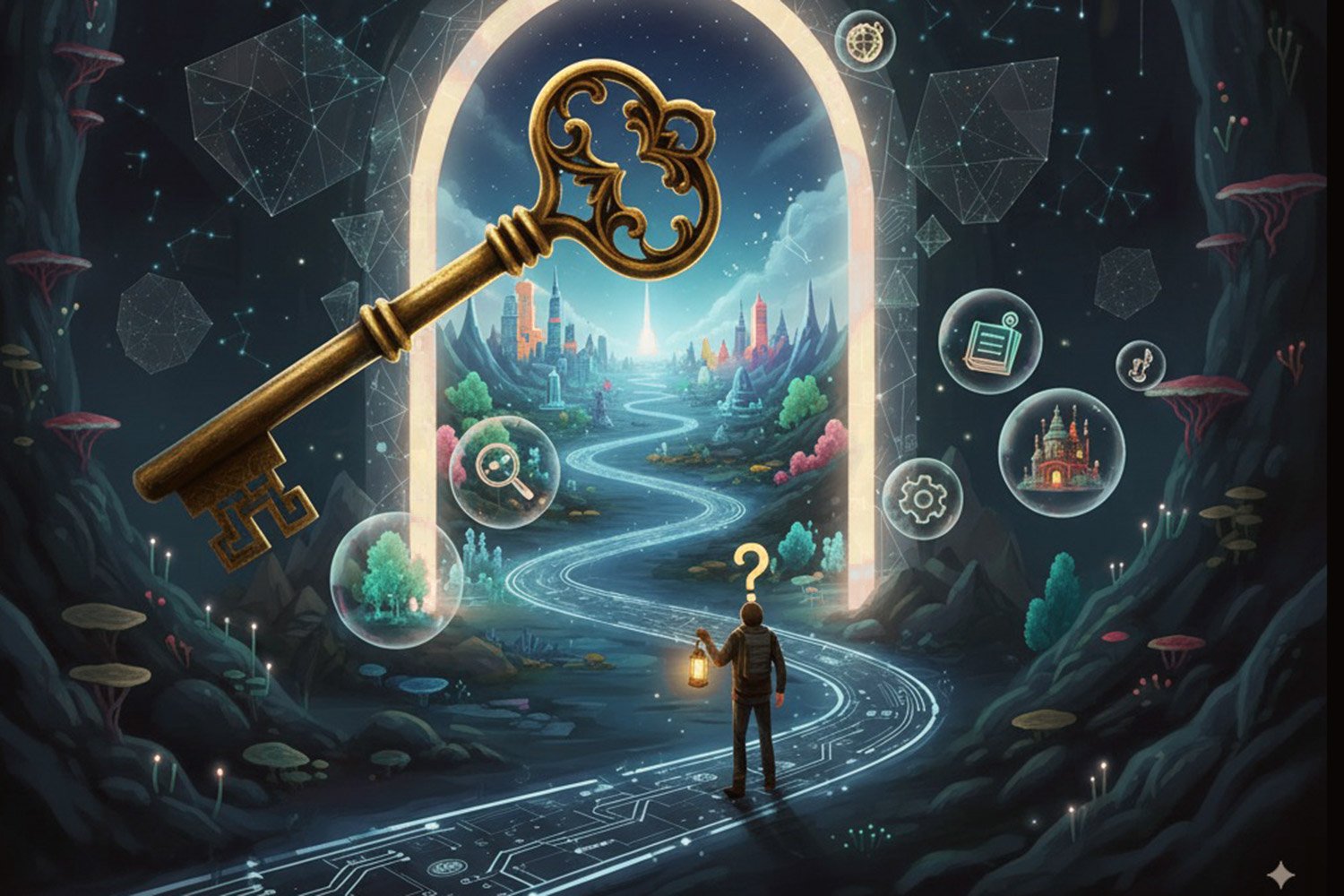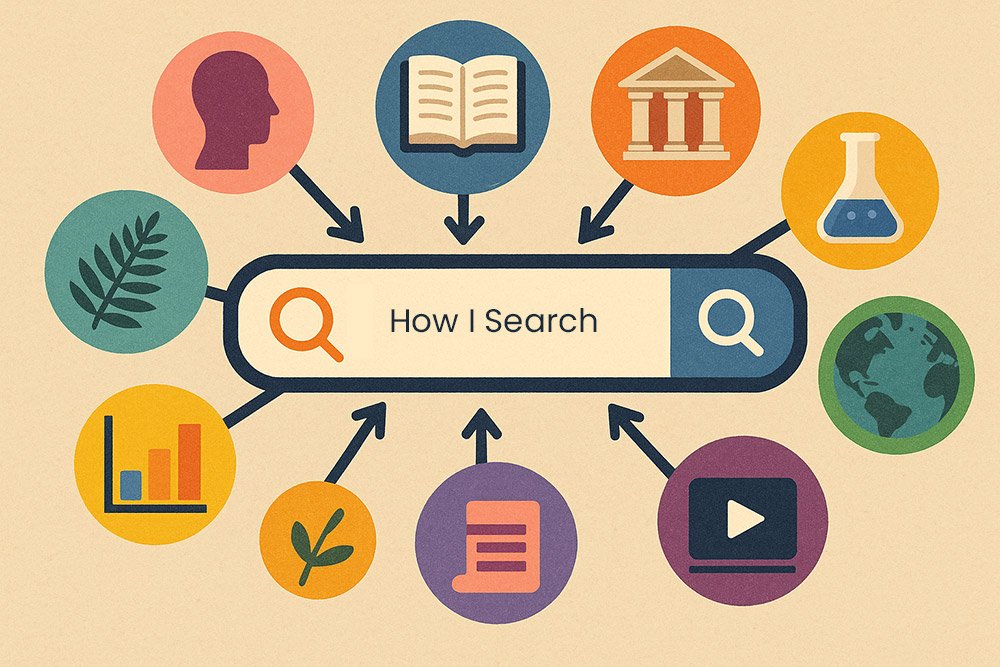Table of Contents
When most people think of a search engine, they think of one thing: Google. Perhaps Bing, if they’ve been nudged by Microsoft, or DuckDuckGo, if privacy is a priority. But the internet is far bigger than the handful of mainstream portals we use daily. Beyond the giants lies a whole ecosystem of niche search engines and tools designed for specific communities, needs, or curiosities. For a mind that can easily get lost in a sea of information, this mainstream approach can lead to what some researchers have termed “cyberchondria,” an escalation of concerns after engaging in repeated online searches. The endless stream of sponsored links, ads, and irrelevant results can quickly transform a moment of curiosity into a frustrating experience.
These search engines may not replace Google for your everyday “where’s the nearest coffee shop” question, but they open doors to fascinating corners of the web. Whether you’re a researcher, a creative, a bargain hunter, or just someone curious about the hidden web, niche search engines can feel like treasure maps. For a curious mind prone to distraction and racing thoughts, a niche search engine offers a targeted, curated alternative to the noisy, overwhelming environment of the general web.
Let’s explore some of the most interesting ones, grouped by what they’re best at.
1. For the Curious Mind: Deep Knowledge Search Engines
Wolfram Alpha is not a traditional search engine; it is more like a computational brain. Instead of giving you links, it calculates answers. Want to know the life expectancy in Brazil, the trajectory of a comet, or how many calories are in a Big Mac? Wolfram Alpha crunches the data and provides a precise, exact answer.
Great for: students, researchers, and trivia nerds who want precision over endless blue links. For a student who struggles with math anxiety, this kind of precise, non-distracting solution to a specific problem can be invaluable.
RefSeek is like Google Scholar’s friendly cousin. It searches through academic papers, encyclopedias, and journals without the clutter of ads. If you want credible sources without sifting through random blogs or Quora threads, RefSeek is a goldmine. The ability to find credible sources without extraneous noise is a form of digital well-being; it allows users to satisfy a knowledge-based craving efficiently and with confidence, mitigating the risk of getting lost in an unproductive spiral.
Great for: college students, teachers, writers, and anyone who prefers facts over opinions.
2. For the Visual Explorer: Image & Design Search Engines
Yandex Images: Sometimes Google Images isn’t enough. Yandex, the Russian search giant, has one of the best reverse image search engines around. Upload a picture and it will show you visually similar results—even better than Google in some cases. Designers use it to track down original artwork, and shoppers use it to find the source of products.
Great for: designers, photographers, and online shoppers trying to track down “that cool lamp I saw on Pinterest.”
Everypixel: Looking for stock photos, vectors, or icons? Everypixel searches across dozens of free and paid stock photo sites at once. Instead of opening twenty tabs, you can find what you need in one place.
Great for: bloggers, marketers, and creatives who don’t have time to dig through endless stock sites.
3. For the Shopper & Smart Searchers
Mojeek
Unlike most search tools that lean on Google or Bing, Mojeek has its own independent web index. That means it surfaces sites you might not see elsewhere including smaller retailers. It’s also privacy-focused, so you can browse for deals without constant tracking.
Great for: shoppers who want to support independent businesses or find results beyond the mainstream.
Presearch
This decentralized, community-powered search engine lets you choose which sources you want to pull from including shopping results, Wikipedia, or even crypto data. It’s ad-light, customizable, and rewards users with tokens, making it feel more participatory than traditional search.
Great for: curious shoppers and tech enthusiasts who like transparency and a sense of control over their searches.
Together, Mojeek and Presearch show that shopping online doesn’t have to mean handing all your data to the big players and you can discover new sources while staying in control.
4. For the Privacy-Conscious
DuckDuckGo is, indeed, the best-known alternative to Google, but it’s worth repeating—no tracking, no filter bubbles, no creepy ads following you. The search results aren’t always as sharp as Google’s, but for everyday browsing, it’s refreshing to feel unseen.
Great for: anyone tired of being a product in the data economy.
Startpage Think of Startpage as Google without the spying. It uses Google’s results but strips out the tracking and ads. You get the power of Google’s search index with the privacy of DuckDuckGo.
Great for: those who want the best of both worlds—accuracy and anonymity.
5. For the Fun & Quirky
Million Short. Ever feel like the internet is just the same 100 websites over and over? Million Short flips that script. It allows you to remove the top million sites from your search results, enabling you to discover smaller, overlooked pages. The rabbit holes here are endless.
Great for: digital explorers, bloggers, and anyone who misses the “weird web” of the early 2000s.
Yandex Video: Want video search results beyond YouTube? Yandex Video crawls a wide variety of sources worldwide, surfacing content from different platforms that often don’t appear in Google’s video tab. It’s a handy way to find lectures, clips, or regional media that might otherwise be buried.
Great for educators, international audiences, and anyone seeking fresh video sources.
Pexels Video: If you’re working on a project and need free, high-quality video footage, Pexels Video is a lifesaver. It’s a search engine for stock clips contributed by creators, all available to use without licensing headaches.
Great for: teachers, designers, YouTubers, and side hustlers who want professional-looking videos without breaking the bank.
Why Niche Search Engines Matter
In a world where one company dominates how we find information, niche search engines remind us that the internet is still diverse. They’re often run by smaller teams with big visions: to make research easier, to protect privacy, to save shoppers money, or to spark creativity. For the ADHD brain, the search for an answer and diving into articles can be “beyond fascinating,” but it can also be a source of overwhelming frustration. Niche search engines offer a structured, intentional path for that curious energy, enabling users to explore without getting lost.
Even if you only use them occasionally, they give you perspective. They show that the web isn’t just an algorithm deciding what you see, it’s still a vast, human-built network of ideas, tools, and resources.
Final Thoughts
Google may be the front door to the internet, but it’s not the only door. Niche search engines are like side alleys, secret gardens, and hidden markets. They take you places the mainstream never will.
Next time you’re about to type something into the search bar, pause. Ask yourself: Is there a better tool for this job? Chances are, there’s a niche search engine waiting to surprise you.
🔗 Related Links:
You might like, The Ultimate Guide to Selling Digital Products Online








